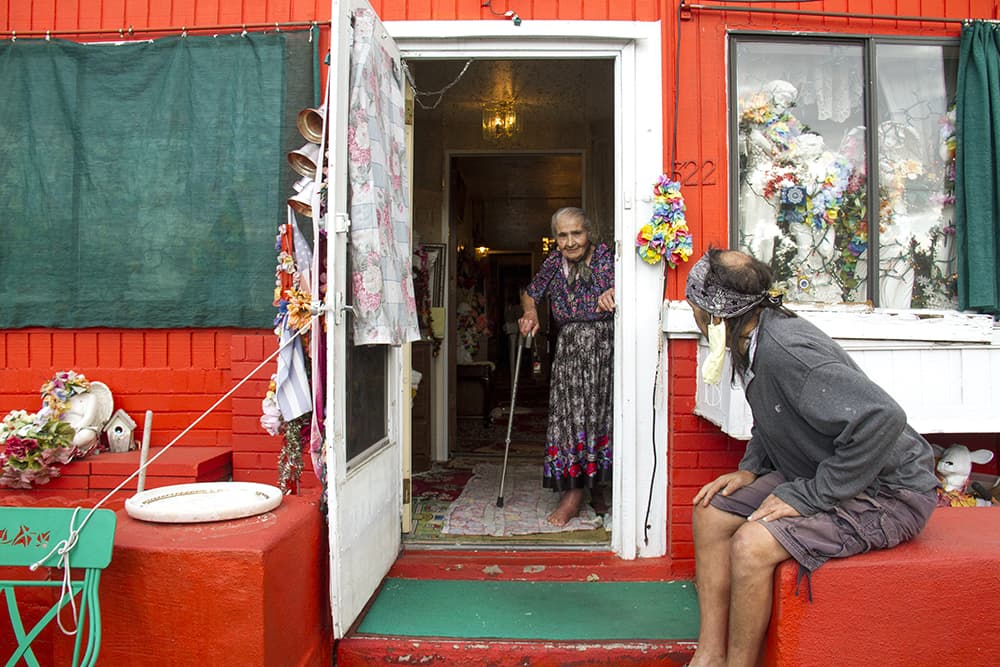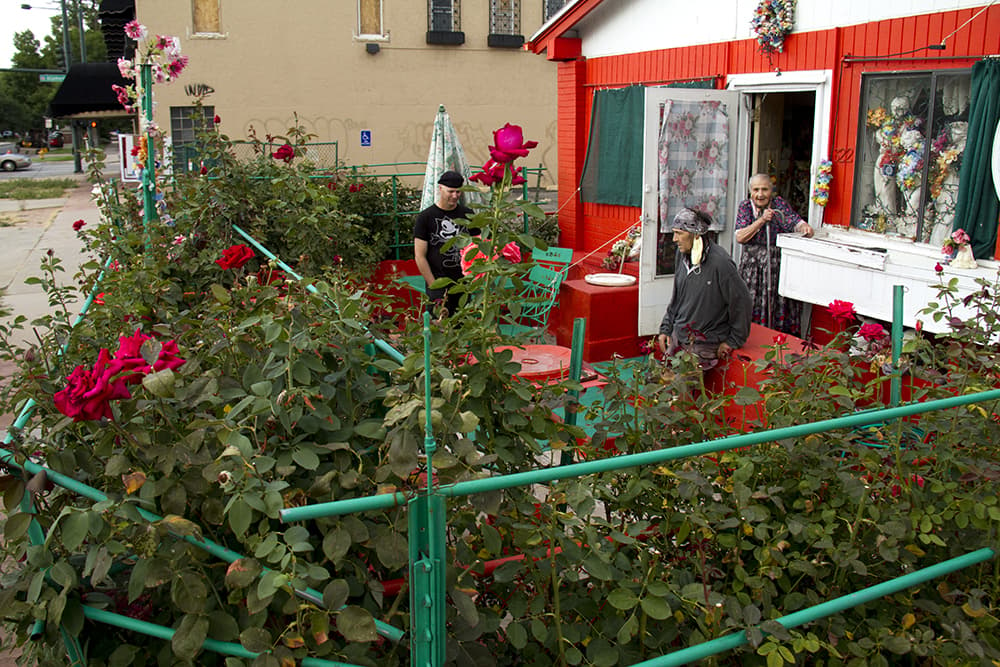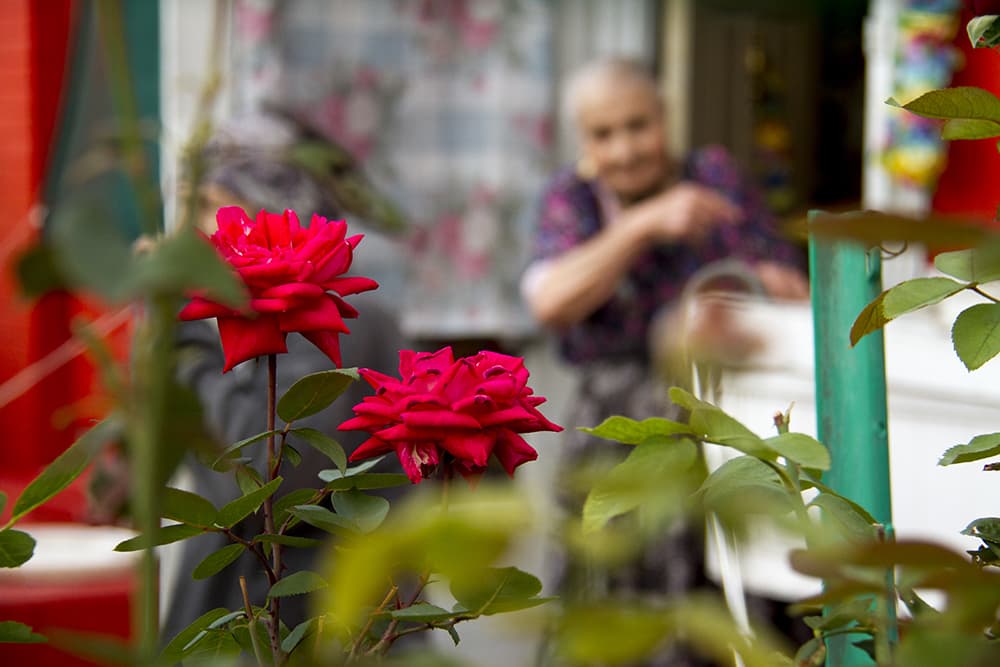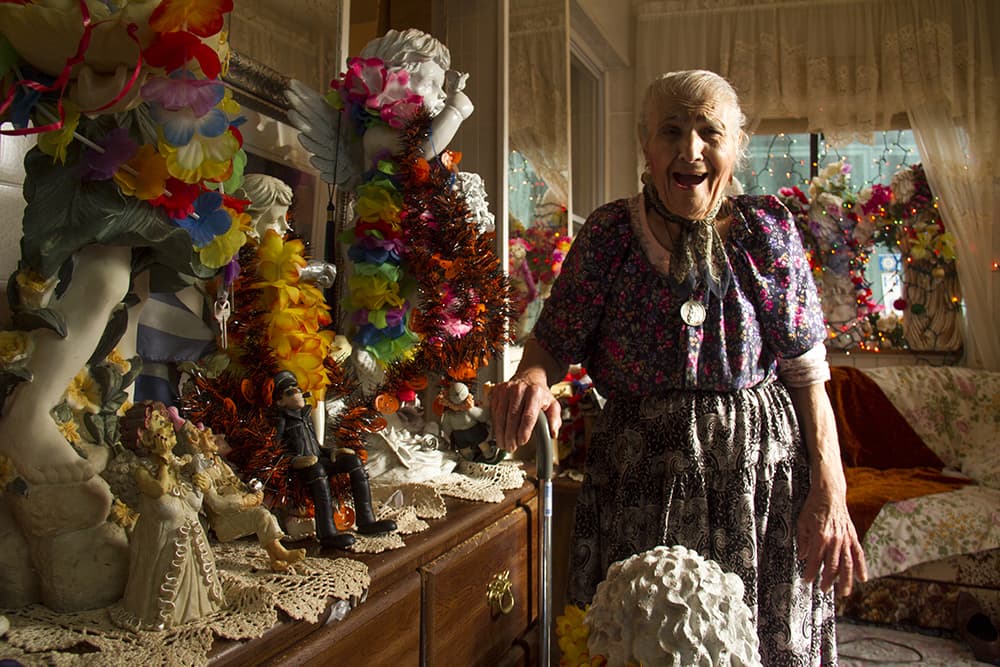Fotini Demos, owner and 55-year resident of Denver's iconic "rose house," has died at age 86.
Demos had a stroke, her third in the last year or so, and was in a coma before she died Tuesday.
Demos' two houses at Alameda Avenue and Logan Street were a landmark to Denver locals. Their tomato-red color and enormous front-yard rose garden were a beacon at the edge of West Washington Park.
Denverite wrote about her legacy in 2016:
Demos had plans to sell the houses and move back to Greece, but for the past year or so she was in and out of the hospital with two strokes and moved to Brookshire Home. In December of last year, the houses were sold and the garden destroyed.

Particularly in her later years, Demos was beloved character in her neighborhood. Felixx Welliver, who rented her other house, remembers a woman whose personality was overflowing from the property in the form of flowers, music and food.
"One of the funnier things that I remember about her from when I lived there is she liked to play Greek music outside of her door. She would have a regular tape deck and these old Greek tapes," he said. "You know how some countries play prayer music so loud the whole city could hear? That was her. Any time somebody would walk by, she would cut them a rose and send them on their way, listening to music.
"She would turn it on and then shut her door and go into the house. She went through different tape decks because the sun would melt them. So I would sneak out there and I would turn it down but I would do it ever so slightly to try to be sneaky about it. I've been in her house a lot and I know that when the door is shut, you can't really hear it. So I would turn it down and hope that once she's gone, she's not going to notice. I'd run back to my place and sit down and pick up my beverage and relax and moments later it's turned back up."

Demos was also always prepared to feed visitors. When Denverite reporters visited in 2016, she insisted they take some biscotti. Welliver said she always sent him home with baclava from her freezer, though it was sometimes years past its expiration date.
"She would always tell me 'I love you,' but she would say it in Greek. She would say thank you and always tried to give me money for shoveling (snow). Whenever I went over there to go pay my rent or sometimes other times she would give me baclava," he said. "She would go into her freezer and grab it, and it was this huge thing, and she would go, 'Here you go, here you go, I love you, I love you."
Demos is survived by her son, Gus Demos.
There will be a small service in Denver, after which she'll be buried in Greece beside her husband, Pete Demos.















